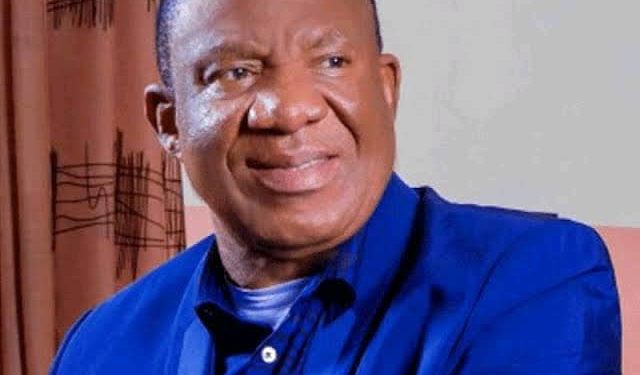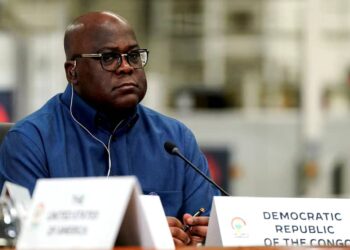The Nigerian Local Contact Act 2010, was enacted to tackle many challenges facing the nation’s oil and gas industry.
Specifically, it was aimed at promoting industrialization of the sector, thereby improving the economic and social wellbeing of the citizens.
In this interview first published by VANGUARD, Chief Executive Officer, CEO, of Lee Engineering Nigeria Limited, Leemon Ikpea, speaks on how the Act is boosting indigenous participation in the oil industry. He also speaks on how the Nigerian Content Development and Monitoring Board (NCDMB) is aiding growth in the sector. Ikpea’s firm is a foremost home-grown oil, gas and power services company. It has branches in Warri, Benin and Port- Harcourt while its headquarters is in Lagos.
Beyond the shores of Nigeria, Lee Engineering has offices in the United Kingdom, Italy and the United States of America.
Speaking on the local content initiative driven by NCDMB, Ikpea recalled that the industry was under the full control of foreigners, adding that these foreigners were running the show from managerial, to technical and even the supply space.
Ikpea however expressed excitement that things have changed, saying Nigerians are not only involved but excelling and exporting their expertise.
According to him, the enactment of the Local Contact Act 2010 gave strength and legal rights to Nigerians to fully participate in the industry.
He furrher commended government for the establishment of the NCDMB, saying the body has been doing a fantastic job.
“Fantastic people have been manning that position and the leadership has been doing well.
“If they are given free hands, Nigeria will be able to build a lot of capacities and will be fully involved in building the nation’s economy.
“The marginal field development we talked about, Nigerians are playing major roles there. In the past, majority of us were contractors to the big men (IOCs) from different parts of the world. Today, some of those players are now our contractors. So, government has turned the industry around,” he said.
Marginal field acquisition
While commending the Department of Petroleum Resources (DPR) for the procedure followed in the emergence of bid winners in the marginal oil field acquisition, Ikpea noted that the procees was transparent, free and fair, and in line with global best practices.
Dismissing complaints in some quarters on the process, Ikpea said:”I want to commend the DPR team and the Ministry of Petroleum for an excellent job well done.
“I want to commend the DPR team and the Ministry of Petroleum for an excellent job well done. Some minorities feel otherwise. If the majority is saying it was done properly and a few are saying otherwise, we have to accept the wishes of the majority,” he added.
Speaking on the implications of transferring oilfield ownership to Nigerians unlike when crude oil exploration was an exclusive reserve of multinational oil corporations, the Vanguard Businessman of the year 2020, said the initiative will boost the nation’s economy.
He explained that government will generate more taxes from indigenous firms now running the oilfields, adding that more Nigerians would develop expertise in the industry.
“The window of employment and its multiplier effects on the economy will be enormous. Recall that all the firms that participated and won the bids are indigenous. This means they will employ local engineers in their exploration and other processes of executing their businesses as it relates to this venture.
“Except for a few of them who have foreign partners, the initiative will imply that we have to grow capacity, develop infrastructure and as well consider local sourcing of funds. All these activities would impact Nigeria’s economy positively .
“The move is bound to yield fantastic dividends from all fronts,” he stated.
ON PIB
On the recent passage of the Petroleum Industry Bill (PIB) and the various controversies trailing it, he said the National Assembly (NASS) should be applauded for passing the bill despite the obstacles and opposition faced.
Stressing the bill has been in the NASS for close to two decades, Ikpea said the passage of the PIB is a pass mark for the legislators, just as he expressed optimism that the bill would be beneficial to all.
The PIB, according to him, is going to improve Nigeria’s economy as well as its capabilities to expand into different frontiers in the industries.
“If you recall, the main players in the industry were the IOC’s but now with PIB, more Nigerians are coming and more businesses will strive
“Also, our government would generate more foreign exchange. I think it’s a win-win situation,” he added.
On some critical issues the bill would address, he said: “In the industry today, there has always been community-related issues. There have been back and front between the IOCs and their host communities. Now that government and the PIB have addressed part of the community issues, I am sure there will be a level of playing field for the IOC’s and those in general that will be involved in the industry.
“I believe the communities would benefit. The traditional rulers would benefit as well.”
Natural gas
Ikpea further said harnessing Nigeria’s abundant natural gas is vital to the country’s economic growth and development, adding that the product must be properly managed for the country to benefit from it.
“Majority of Nigerians have been sleeping in darkness. That is wrong given the country’s enormous gas reserves. Our gas reserves, I believe, if properly harnessed, will improve the power sector. This can be achieved by providing gas for the turbines. I think gas can be a major revenue earner for the country,” he added.
On refineries
Even as many Nigerians have continued to condemn the recent decision to rehabilitate the nation’s refineries, Ikpea insisted the facilities were overdue for rehabilitation.
Tracing his career path to the Warri Refinery and Petrochemical Company, he said he grew up at the refinery.
“In fact, we built and supervised the Warri refinery. My former employer, Snamprogetti, is a member of Eni Group, Italy, built the Warri refinery and commissioned it,” he added.
According to him, it is traditional to maintain a refinery at specific times globally.
“We carry out general maintenance of the refinery every two years, and general maintenance takes 45 days whereby the whole plant will be shut down,” he added.
Expressing concern over the current state of the industry he exited three decades ago, Ikpea added: “I resigned about 30 years ago and established my company which is today 30 years now. Surprisingly, we have discovered that mandatory two years’ maintenance of the refineries does not happen anymore. Vandalization of the pipelines has also been happening. So, multiple problems are hampering development in the country’s refineries.
“If government finally decided to maintain the refinery, it would be very good. We can’t continue refining our crude oil abroad.
“I think government has realized that the refineries have to be properly maintained. We have to refine our product and sell the refined product to earn foreign exchange. Government is going in the right direction and I commend them. I commend the President, Minister, and the Group Managing Director of NNPC. I pray God gives them the courage to complete the rehabilitation of the three refineries for profitability and Nigeria’s economic growth.
“However, it is noteworthy that during refinery maintenance, there would be job opportunities for the unemployed youths in the society. Therefore, maintaining refineries would also give some skills to the people.”
Borrowing
On taking loans to fund infrastructure, Ikpea noted that “Every government in the world borrows. Even as strong as America’s economy is, the country still borrows. Nigeria is not an exception.
“The good thing is that God has blessed this country with a lot of human resources, mineral resources and a lot of natural resources. It is just for us to be courageous enough to enhance it properly.
“Our sincere desire is to see that the NCDMB Board has more resources and is given the free hand to put in place good measures. I am positive that the petroleum engineering sector would remain supportive of the NCDMB.”
“Many indigenous firms now operating in the sector get the backing of the NCDMB to have a breakthrough.
“The management and the board should be given all the necessary support to ensure they continue with their objectives of ensuring our local firms take charge of Nigeria’s industrial transformation.
“When it becomes the priority, the much talked about capital flight will be a thing of the past,” he added.



































